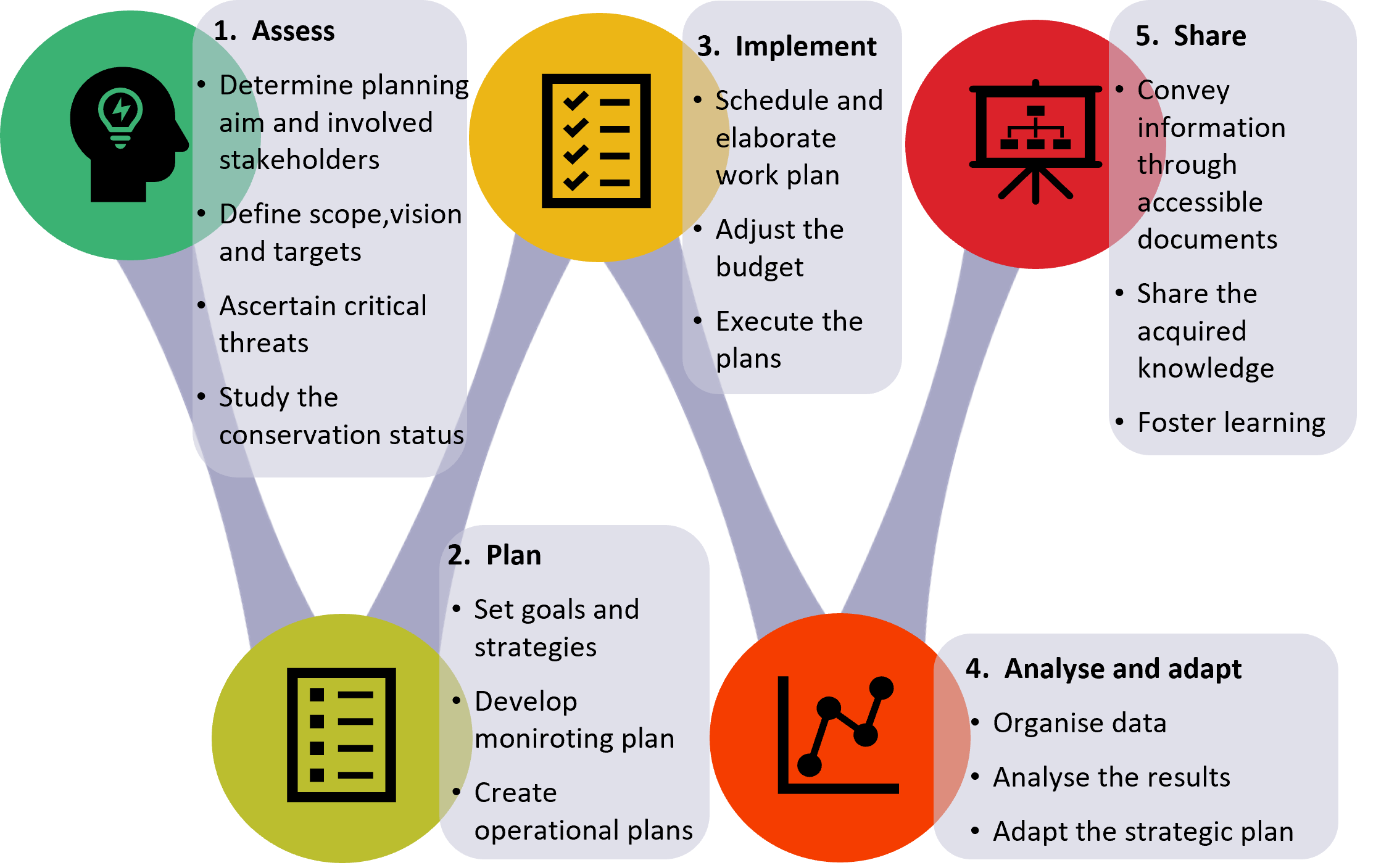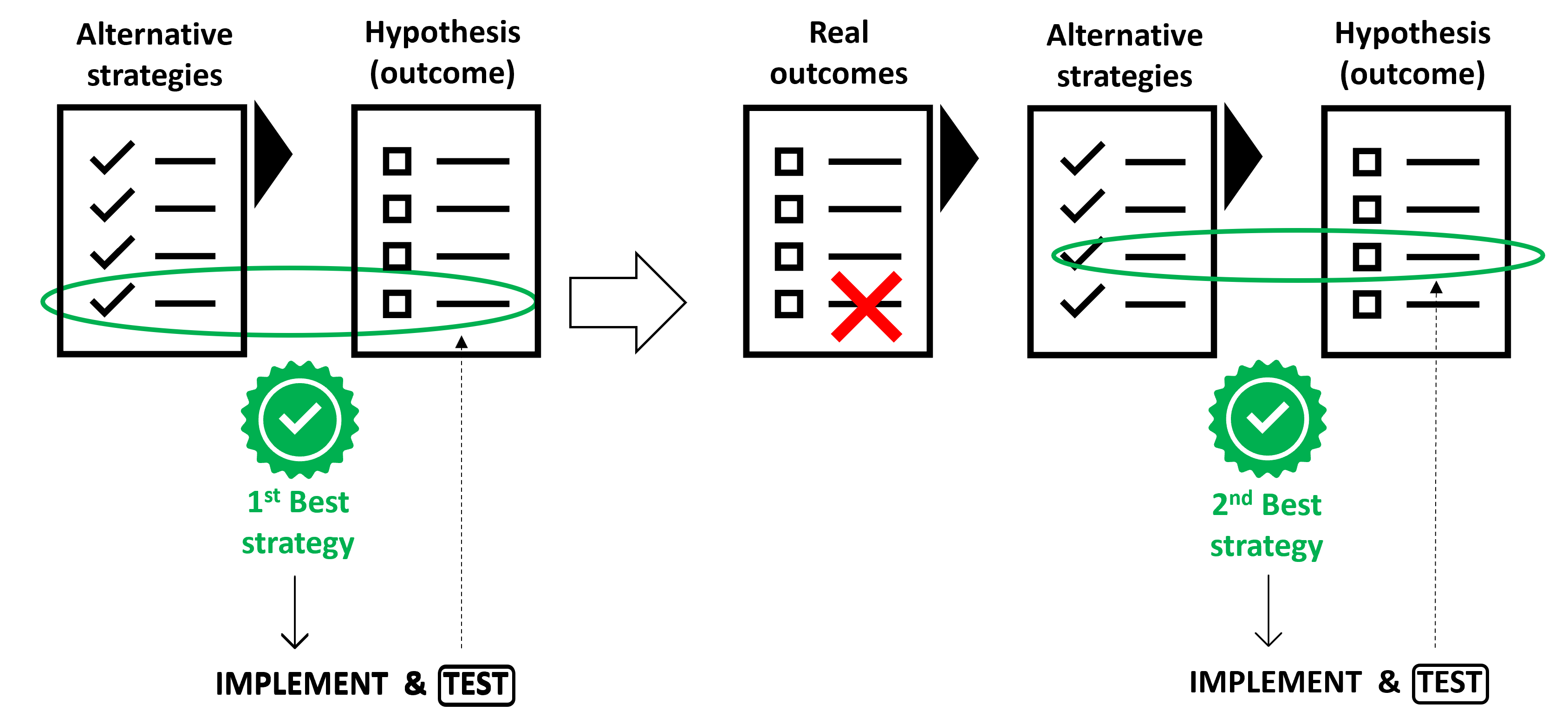Adaptive management
Adaptive management is a process by which a system is managed and the managers learn as they go: ‘learning while doing’ (Holling, 1978).
It is common that actions do not always go as planned and circumstances change all the time. Consequently, there is a need to adapt the management strategy/plan to such changes which are often unpredictable and uncertain.
While structured decision-making can help to identify first-choice actions, there may remain uncertainty or disagreement as to the best course of action in the implementation process. An adaptive management approach can help to resolve critical uncertainties around aspects such as:
- How might species respond to different climate change scenarios?
- How might species respond to different conservation interventions or actions?
- How are conservation alternatives traded off in combination with their costs and in combination with their values to different stakeholders, while always striving to meet the objectives?
Learn how
In active adaptive management, managers assess the likely outcome of, and learning from, each of a range of alternative strategies, and choose the one most likely to achieve their objectives overall (McDonald-Madden et al., 2011).
You should know...
One of the main initiatives of adaptive management implementation in nature conservation is the Open Standards for the Practice of Conservation (OS), developed within the frame of Conservation Measures Partnership.
This initiative considers five steps in the adaptive management cycle.

